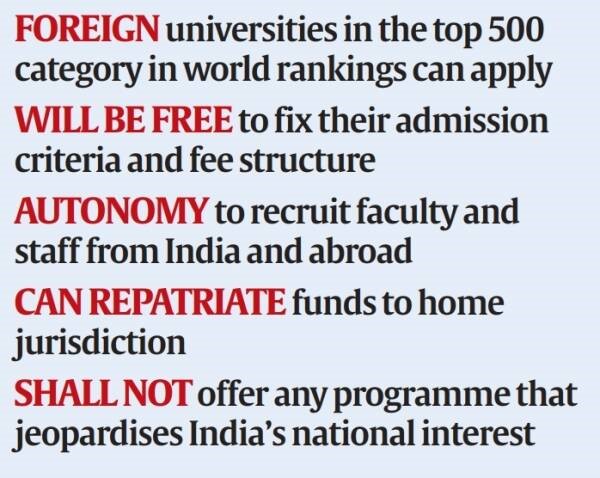7667766266
enquiry@shankarias.in
Higher education regulator University Grants Commission (UGC) released draft regulations to allow foreign universities to set up campuses inIndia.
No foreign higher education can set up campuses without the approval by the UGC.

Reference